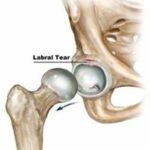5 Ways Music Therapy Promotes Overall Well-Being
We humans have been listening to music since the age of time. From prehistoric and medieval to Renaissance and Baroque to classical to 21st-century, music has evolved a lot. Many cultures from the ancient world believed in the power of music in healing, but the scientific approach emerged only in the 18th and 19th centuries.
From the onset of the 21st century, we started witnessing the development of music therapy as a recognized field to treat and support physical and mental well-being.
So, here in this article, we will explore 5 ways music therapy can promote well-being.
What is Music Therapy
Before we start and reveal how music therapy promotes our well-being, let’s understand a little about music therapy.
Music therapy uses music and its elements like sound, rhythm, pitch, duration, etc. to achieve certain goals, like improving quality of life. It also includes singing, playing instruments, writing music, etc.
Types of Music Therapy
Like various genres of music are there to suit different tastes, this too has different approaches to suit specific needs. However, it is broadly divided into two categories or types.
- Receptive Music Therapy: This category is mainly about listening. Under this, you listen to certain music selected by your therapist and discuss it. It helps in understanding your thoughts and feelings.
- Active Music Therapy: This is more of a creative part of the therapy, wherein you actively participate in songwriting, singing, and playing instruments. This helps in expressing your emotions and improves motor and communication skills.
Goals and Objectives
It has been used to achieve a wide range of objectives and depending on the needs of an individual, it may vary. Some may want to improve their physical health, in this case, the therapy can help in pain management and motor skills.
For some, enhancing their emotional well-being might be the primary goal. For those, music therapy can be a good option to fight depression and anxiety and it also offers a safe space for people to express their emotions that might be difficult to speak about. Some people also find it helpful in improving their cognitive functions or social skills.
So, based on your needs, professionals will design sessions tailored to meet specific goals.
What Happens During the Session?
During a session and based on individual needs, people may participate in multiple music-related activities. For example, your therapist may ask you to create or listen to music, sing music, or even discuss the lyrics of music with your therapist, the options are as diverse as genres of music.
What Are the Risk Factors?
You might be wondering what harm a piece of music could cause, right? Though you are correct to a great extent, it isn’t as straight as it may look.
Music therapy, in general, is quite safe and low risk, however, there are a few risk factors. The main risk factor of music therapy is that it can trigger unpleasant or painful memories that may make one uncomfortable.
Another factor is overstimulation. For those with sensory sensitivities, music with loud sounds, a fast tempo, or certain lyrics could be overstimulating. These situations can also cause anxiety in some individuals.
Fortunately, to avoid such situations, therapists before the session discuss your life experiences, including history of trauma, and other facets of your life that may influence your reaction to the music. These pieces of information will help your therapist to create or design a safe and comfortable session.
5 Ways Music Therapy Promotes Well-Being
As we are into the final section, let’s discuss the top 5 ways music therapy can promote overall well-being. Music therapy can be used in conjunction with other therapies or as a separate intervention and it comes with many benefits.
- Combat Stress and Anxiety: Music therapy uses three different ways to combat stress, and these are physiological, psychological, and distraction. Our body reacts to music and when we listen to calm music, it slows down our heart rate, lowers our blood pressure, and reduces stress hormone levels. Music can trigger a feeling of peace, uplifting music can boost our moods and promote positivity, and focusing on music can distract you from unwanted worries and thoughts, offering you a break from stress.
- Healing: Music doesn’t heal your body like medicines do but it can indirectly help you heal. For example, listening to calm music can distract your mind from intense pain, making it less painful. Upbeat music can boost your mood and make you more positive about life.
- It Relieves from Symptoms of Depression: Music therapy fights depression on multiple fronts. When experiencing depression, one feels low and sad. Listening to upbeat or calm music can trigger the release of neurotransmitters like dopamine and endorphins in the brain which helps in uplift and boost your mood.
- Reduce Symptoms of Schizophrenia: Yes, you heard it right. Multiple studies suggest music therapy can improve symptoms of schizophrenia such as social withdrawal, and lack of motivation, and improve sleep, mood, and social interactions.
- Stimulate Memories: Alzheimer’s is a serious mental health condition and as the condition progresses, it can severely impact memories. Listening to certain music can trigger happy memories in people with Alzheimer’s, evoking positive emotions.
Conclusion
As we reflect on the influence of music throughout human history, it becomes more evident that music isn’t for mere entertainment, It is deeply connected with our emotional, physical, and mental well-being. From soothing melodies to calming our hearts to uplifting beats to boost our spirit, music therapy offers a holistic approach to well-being. So, explore music therapy options and discover the transformative power of music to boost your mind, body, and soul.











